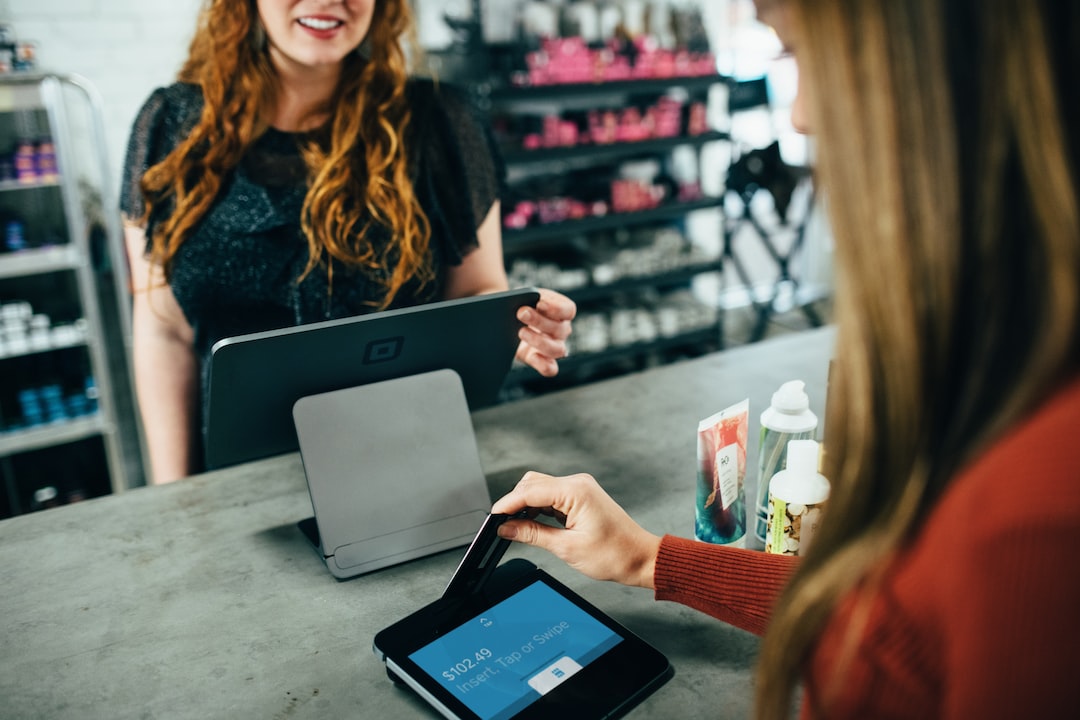Loyalty programs have become increasingly popular among businesses and customers alike. These programs offer incentives for customers to continue doing business with a company, such as rewards and discounts. However, with the collection of customer data comes the responsibility to protect that data. This blog post will explore how BonusPink, a loyalty program, approaches data privacy and the importance of balancing value with security.
Key Takeaways
- Data privacy is crucial in loyalty programs to protect customer information.
- BonusPink is a loyalty program that offers value to customers through rewards and discounts.
- Data collection is necessary for loyalty programs to personalize offers and improve customer experience.
- However, data collection also poses risks such as security breaches and misuse of information.
- BonusPink has policies and procedures in place to protect customer information and communicates transparently with customers about data privacy.
Understanding BonusPink: An Overview of the Loyalty Program
BonusPink is a loyalty program that allows customers to earn rewards and discounts when they frequent participating businesses. Customers can sign up for the program through a stamp card or a mobile app. With the stamp card, customers receive a physical card that they can present at participating businesses to earn stamps. Once they have collected a certain number of stamps, they can redeem them for rewards or discounts.
The mobile app offers a digital version of the stamp card, allowing customers to easily track their progress and redeem rewards. The app also provides additional features, such as personalized offers and notifications about new promotions.
The Benefits of Loyalty Programs: How BonusPink Creates Value for Customers
Loyalty programs provide incentives for customers to continue doing business with a company. By offering rewards and discounts, these programs create value for customers by giving them tangible benefits for their loyalty. BonusPink takes this concept a step further by partnering with a wide range of businesses, including restaurants, retail stores, and service providers. This allows customers to earn rewards and discounts at a variety of places they already frequent.
For example, a customer who frequently dines at participating restaurants can earn stamps towards free meals or discounts on their bill. Similarly, a customer who shops at participating retail stores can earn stamps towards discounts on their next purchase. These benefits not only save customers money but also encourage them to continue supporting the businesses they enjoy.
The Role of Data Collection in Loyalty Programs: How BonusPink Gathers Customer Information
In order to provide personalized offers and rewards, BonusPink collects customer data. This data is collected through stamp cards and mobile apps. When customers sign up for the program, they provide their contact information, such as their name and email address. This allows BonusPink to communicate with customers about their rewards and promotions.
Additionally, BonusPink collects information about customers’ purchase history. This includes the businesses they frequent, the products or services they purchase, and the frequency of their visits. This data allows BonusPink to tailor offers and rewards to each individual customer’s preferences and behavior.
The Risks of Data Collection: The Potential for Security Breaches and Misuse of Information
While data collection is essential for loyalty programs like BonusPink, it also comes with potential risks. One of the main risks is the potential for security breaches. If customer data is not properly protected, it can be vulnerable to hackers who may use it for malicious purposes. This can lead to identity theft, financial fraud, and other harmful consequences for customers.
Another risk is the potential misuse of customer information by the company itself. If a company were to sell or share customer data without consent, it could violate customer privacy and trust. This can damage the reputation of both the company and the loyalty program.
BonusPink’s Approach to Data Privacy: Policies and Procedures for Protecting Customer Information

BonusPink takes data privacy seriously and has implemented policies and procedures to protect customer information. One of the main measures they take is encryption. This means that customer data is stored in a secure format that can only be accessed with a unique encryption key. This helps prevent unauthorized access to customer information.
Additionally, BonusPink has strict access controls in place. Only authorized personnel have access to customer data, and they are required to follow strict protocols when handling this information. This helps ensure that customer data is only accessed by those who need it for legitimate purposes.
Transparency and Consent: How BonusPink Communicates with Customers about Data Privacy
Transparency and obtaining customer consent are key components of data privacy. BonusPink communicates with customers about their data privacy practices through their terms and conditions and privacy policy. These documents outline how customer data is collected, used, and protected.
Additionally, BonusPink obtains customer consent when customers sign up for the loyalty program. Customers are required to agree to the terms and conditions, which include a section on data privacy. This ensures that customers are aware of how their data will be used and gives them the opportunity to opt out if they do not agree with the terms.
The Future of Data Privacy in Loyalty Programs: Emerging Trends and Best Practices
Data privacy is an evolving field, and there are emerging trends and best practices that loyalty programs like BonusPink should consider. One trend is the use of anonymized data. This means that customer data is stripped of any personally identifiable information before it is used for analysis or marketing purposes. This helps protect customer privacy while still allowing companies to gain insights from the data.
Another trend is the use of advanced technologies, such as artificial intelligence and machine learning, to enhance data privacy. These technologies can help identify potential security breaches or unauthorized access to customer data in real-time, allowing companies to take immediate action to protect customer information.
Best practices for data privacy in loyalty programs include regular security audits, employee training on data privacy protocols, and regular updates to privacy policies to reflect changes in regulations or industry standards.
The Importance of Customer Education: How BonusPink Educates Customers about Data Privacy
Customer education is crucial in protecting their data privacy. BonusPink understands this and takes steps to educate customers about their data privacy practices. They provide clear and concise information about how customer data is collected, used, and protected through their website, mobile app, and customer support channels.
Additionally, BonusPink regularly communicates with customers about any updates or changes to their data privacy practices. This ensures that customers are kept informed and have the opportunity to make informed decisions about their participation in the loyalty program.
Balancing Value with Security in the Loyalty Program Landscape with BonusPink’s Stamp Card.
In conclusion, data privacy is of utmost importance in loyalty programs like BonusPink. While these programs offer valuable rewards and discounts to customers, it is essential to balance this value with the security of customer information. BonusPink takes data privacy seriously and has implemented policies and procedures to protect customer data.
By being transparent with customers about their data privacy practices and obtaining customer consent, BonusPink ensures that customers are aware of how their data will be used and have the opportunity to opt out if they do not agree with the terms. Additionally, BonusPink educates customers about their data privacy practices to empower them to make informed decisions about their participation in the loyalty program.
As the landscape of loyalty programs continues to evolve, it is important for both businesses and customers to prioritize data privacy. By doing so, loyalty programs can continue to provide value to customers while also protecting their sensitive information.
Check out this insightful article on data privacy in the loyalty program landscape: “Balancing Value with Security with BonusPink.” The article discusses the importance of maintaining a delicate balance between providing value to customers and ensuring their data is secure. It explores how BonusPink, a leading loyalty program, has successfully navigated this challenge. To learn more about how BonusPink prioritizes data privacy, read the full article here.
FAQs
What is a loyalty program?
A loyalty program is a marketing strategy that rewards customers for their repeat business or loyalty to a brand or company.
What is data privacy?
Data privacy refers to the protection of personal information from unauthorized access, use, or disclosure.
Why is data privacy important in loyalty programs?
Loyalty programs collect and store personal information about customers, including their purchase history and contact details. Protecting this information is important to maintain customer trust and prevent data breaches.
What is BonusPink?
BonusPink is a loyalty program operated by a fictional company. It is used as an example in the article to illustrate the importance of balancing value with security in loyalty programs.
What are some examples of personal information collected by loyalty programs?
Personal information collected by loyalty programs may include a customer’s name, address, email address, phone number, purchase history, and demographic information.
What are some potential risks of data breaches in loyalty programs?
Data breaches in loyalty programs can result in the theft of personal information, financial loss, and damage to a company’s reputation. Customers may also lose trust in the company and be less likely to participate in the loyalty program in the future.
How can companies balance value with security in loyalty programs?
Companies can balance value with security in loyalty programs by implementing strong data privacy policies, using secure technology to store and transmit personal information, and being transparent with customers about how their data is being used. Companies can also offer incentives for customers to participate in the loyalty program while still protecting their personal information.

